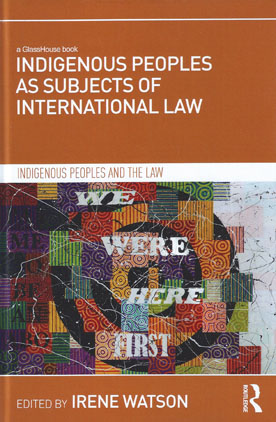
For more than 500 years, Indigenous laws have been disregarded. Many appeals for their recognition under international law have been made, but have thus far failed – mainly because international law was itself shaped by colonialism.
How, this volume asks, might international law be reconstructed, so that it is liberated from its colonial origins? With contributions from critical legal theory, international law, critical anthropology, politics, philosophy and Indigenous history, this volume pursues a cross-disciplinary analysis of the international legal exclusion of Indigenous Peoples, and of its relationship to global injustice.
Beyond the issue of Indigenous Peoples’ rights, however, this analysis is set within the broader context of sustainability; arguing that Indigenous laws, philosophy and knowledge are not only legally valid, but offer an essential approach to questions of ecological justice and the co-existence of all life on earth.